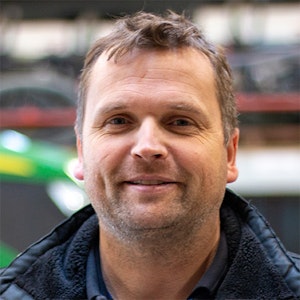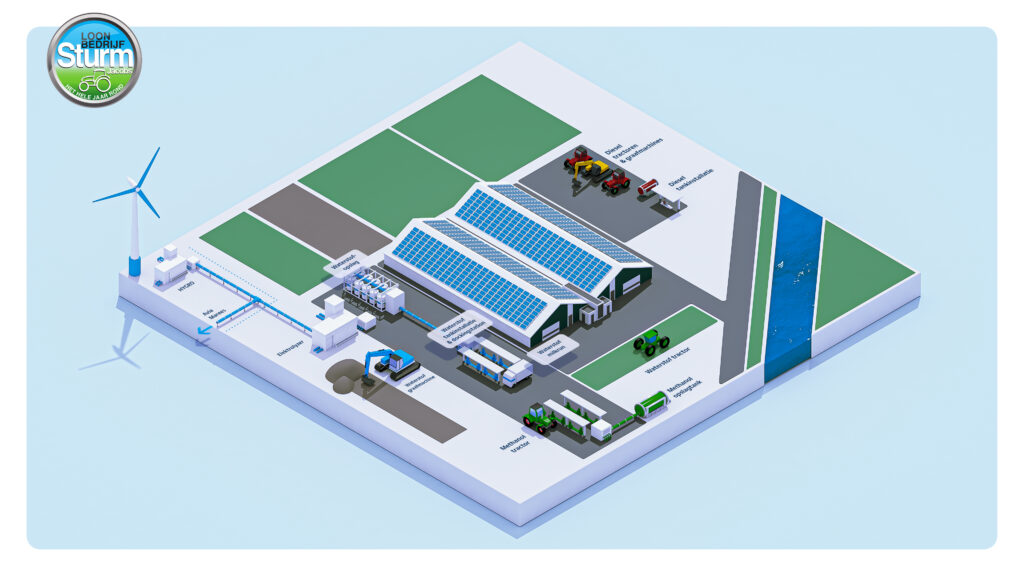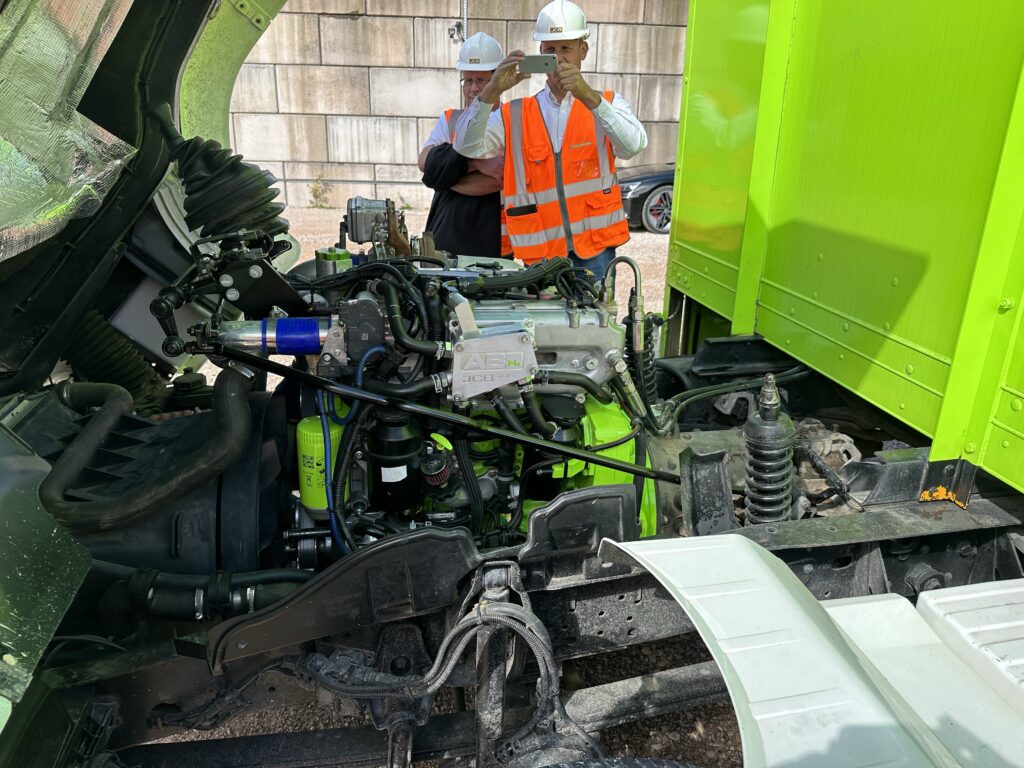In the series partner portraits of Fieldlab Hydrogen in Agri We speak with pioneers who are actively committed to a sustainable future for agriculture. In this episode, Pim Sturm, director of Sturm-Jacobs Contracting Company, over de ambities van zijn bedrijf rondom waterstof, de rol van samenwerking en de praktische uitdagingen waar hij tegenaan loopt. “We willen écht stappen zetten richting verduurzaming – voor onszelf én voor de sector.”

1. Can you briefly introduce Sturm-Jacobs Contracting?
Sturm-Jacobs Contracting is an established name in the agricultural sector. We are located in Wieringerwerf and active in arable farming, bulb growing, and earthmoving in North Holland, as well as elsewhere in the Netherlands, Belgium, Germany, and France. Our earthmoving division has grown significantly in recent years, including site preparation for businesses, greenhouse complexes, wind farms, and data centers.
We're also active in precision farming and are leading the way with applications like GPS-guided seeding, variable rate fertilization, precision spraying, and yield measurements on harvesters, for example. Since 2013, we've been working closely with the Vertify research center, using parts of our own land as test plots.
2. What prompted Sturm-Jacobs Agricultural Contractors to join the Fieldlab Hydrogen in Agri?
The project is important to us because it revolves around collaboration, knowledge sharing, and jointly closing the hydrogen loop—from generation and infrastructure to sales. We can't keep doing things the way we've always done them; that's simply not sustainable. Collaboration within this project helps us and the sector move forward toward a more sustainable agricultural system.
3. What role do you see for hydrogen in agriculture in the long term?
Hydrogen could eventually become a sustainable alternative to diesel, especially for heavy-duty work like earthmoving, harvesting, and transport. Electrification is often not feasible in these areas due to high energy consumption. Hydrogen can also play a role on the farm itself, for example, in combination with energy storage. Local generation and use would contribute to energy independence and emission reduction.
“For us, it's about more than just fuel replacement: we want to work towards a future-proof system in which we can take control of the entire hydrogen chain.”
4. What is the biggest challenge for you?
The biggest challenge is that it's still unclear what is truly feasible and profitable for our company in the field of hydrogen. We want to move forward, but with realistic expectations.
Furthermore, the current supply of hydrogen machines is very limited, and there are no ready-made solutions from manufacturers. Conversion is expensive and risky, partly due to voided warranties.
Regulations and permits for hydrogen are also complex and slow, partly because governments lack experience in this area. Finally, working with hydrogen requires new knowledge and staff training. That's precisely why collaboration in projects like Fieldlab Hydrogen in Agri is so crucial—we can't do this alone.


5. And what has been the biggest success for you within this project so far?
The most important success is the excellent collaboration within the project. A great deal of knowledge is being shared, and suppliers are increasingly viewing us as a serious partner for future hydrogen applications. One of our largest earthmoving customers is also willing to potentially act as a launch customer—a key sign that our network is contributing to the project.
In addition, visits to JCB and Fendt "This has yielded valuable insights, as has the contribution of students who researched our case study. And very concretely: we are about to take the first step into practice with a hydrogen generator. This will allow us to test, gain experience, and truly discover what it takes to make this work on the farm. That feels like a major breakthrough."
